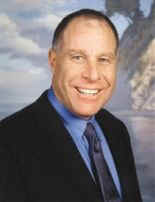
Home (Leave Private Section) Links to Resources Crowd Breakers Help
 |
Home (Leave Private Section) Links to Resources Crowd Breakers Help |
Keys to
Successful Business and Life
Success Key #4: Work Around Your Weaknesses
None of us are perfect. None of us can "do it all." The successful try to work on their critical weaknesses and work around those they can't eliminate.
Guitarist and pianist Eddie Van Halen admits that he was never good at reading music. So how did he win piano competitions as a kid? He read well enough to pick out the right notes, then memorized them. With good memorization skills and "good ears," he bypassed the need to read music well. (1)
 Paul Orfalea, super-successful founder of Kinkos (a copy
store with over 1200 locations around the globe and over $2 billion in revenues
annually), suffered from Dyslexia and ADHD to such an extent that he never
learned to read. Neither could he run the copiers at his stores. So how did he
complete college and start a successful business? He used his deficits to his
advantage. In the fourth grade, he met Danny, whose entire family helped him
with his academics. According to Orfalea,
Paul Orfalea, super-successful founder of Kinkos (a copy
store with over 1200 locations around the globe and over $2 billion in revenues
annually), suffered from Dyslexia and ADHD to such an extent that he never
learned to read. Neither could he run the copiers at his stores. So how did he
complete college and start a successful business? He used his deficits to his
advantage. In the fourth grade, he met Danny, whose entire family helped him
with his academics. According to Orfalea,
"Every major success I've had in my life has come about because I knew that somebody, often anybody, whether it was my wife, friend, or business partner, could do something better than I could."(2)
He learned to depend on others to offset his weaknesses and specialize in what he could do best - getting ideas from his stores and his competitors and passing them on to his partners and employees. As one associate said, "Paul is a walking brainstorm." Since he couldn't communicate well in writing or e-mails, he perfected a network of voicemails. When someone hit on a great idea, she'd dial the central voicemail, which Paul would listen to and forward to the people who needed to hear it. "Talking and listening to each other was the way we got things done." (3)
What weaknesses did other great people have to work around?
We all have weaknesses. We just need to learn how to work around them. Management guru Peter Drucker says, "The specific job of the manager is to make the strengths of people productive and their weaknesses irrelevant." (5) So in job hunting, look for work that both uses your strengths and "makes your weaknesses irrelevant."
Today's Tips:
End Notes
(1) Guitar World Presents Van Halen: Van Halen
in His Own Words, p. 11.
(2) Paul Orfalea & Ann Marsh, Copy This!: Lessons from a hyperactive
dyslexic who turned a bright idea into one of America's best companies, p.
2.
(3) Ibid., pp. 54-56.
(4) C.S. Lewis, Surprised by Joy, pp. 12, 137, 186.187.
(5) Peter Drucker, People and Performance: The Best of Peter Drucker on
Management.
(6) Picture of Paul Orafalea: According to Wikipedia, "This image is copyrighted. The copyright holder allows anyone to use it for any purpose."